- Home
- B. V. Larson
Dust World Page 6
Dust World Read online
Page 6
Harris eyed Sargon. “Specialist,” he said. “This training is just a refresher for you. Take over coaching McGill.”
Sargon looked at him in surprise. “Did I just step in something?”
“That’s right,” Harris said. “Carry on.”
He left, clumping away in his armor. I thought I heard a rumbling chuckle as he went. Harris was an excellent non-com, but he worked hard to avoid work.
Sargon looked at me and shook his head. He heaved a sigh and reached out with thick, gloved fingers. He grabbed my shoulders first and began yanking on straps and placing my armor into a new configuration.
“That’s not feeling right,” I complained.
“Pulling the hairs out of your armpits, isn’t it?” Sargon asked with a grin.
“Yeah, I think so.”
“Good. That’s just where you want it. You’ll get some callouses up there, but you have to have the epaulettes riding high and tight. They’ll spread the weight over your back where you want it.”
I nodded, wincing as he screwed around with more settings and straps. I felt like I was wearing a corset.
“You’ll get used to it. I recommend you shave around the tight areas and apply a thick coating of powder.”
I wasn’t used to this kind of thing—tight clothing. I’d been wearing light weight smart-cloth all my life. It always fit perfectly and adjusted itself if it didn’t.
“Now,” Sargon said. “Fully extend your arms and clap your hands together. Then do it again.”
I did as he asked, and the results were painful.
“Why aren’t these suits built right in the first place?” I grunted. My skin was already getting raw as I pin-wheeled my arms.
“They are, but the nanites in your smart-armor are lazy, see,” Sargon said. “They like to take the easiest path to forming around your body. That isn’t what we want. We have to get the shell to sit right for balance and mobility. Comfort comes last. But don’t worry, if you keep moving like this, they’ll figure it out and start loosening up. Once you have them trained, you can set them to freeze in the new configuration.”
After a few minutes of moving around, I did feel my suit ease up. I was surprised. “That’s a lot better. But I wish I’d greased up first.”
Sargon chuckled. “Every new man in heavy armor thinks that. For Weaponeers, it goes double. We have such a heavy load to carry we can’t let the suits get lazy. They have to perform at max efficiency.”
Around us, most of the troops ignored me. They threw Sargon a nod as they finished their target practice and left. I looked longingly after them. My bunk would feel good after a shower and a rubdown with whatever I could get out of the squad’s bio. I was sure I had a dozen abrasions all over my arms and torso.
“Forget about the other weaponeers. Forget about target practice, too. You aren’t ready yet. A man has to be able to shoulder a tube right before he can hope to aim it accurately.”
I spent the rest of the day moving around in my new armor. By the time Sargon let me go, I was carrying my weapon at a lumbering trot.
“Thanks Sargon,” I told him when we were done. “I needed the one-on-one.”
Sargon nodded and slammed his fist into my chest. At first, I was a little alarmed. But it didn’t hurt. He was grinning, so I grinned back. The blow had staggered me back a step, but I could barely feel it. I remembered I’d seen heavies interact that way now and then. They liked to kick and punch each other in armor. The sight had always made the light troops feel inadequate.
We split up and a few hours later it was lights-out. I drifted off to sleep, beginning to dream. In my troubled sleep that night, Sargon had a great time pummeling my helmet to the delight of everyone in the unit.
-6-
A few more months slid by. Each day left me exhausted but a little more functional. I’d always known that being a weaponeer would be physically taxing, but overall, it was worse than I’d feared.
Maybe if I’d had a year or two to get into shape, it would have been easier. But I didn’t have that kind of time. No one in the legion did. We had a mission to perform, and the arrival date wasn’t going to be shuffled back because I wasn’t ready to do my job.
Each day, I took time out to visit the forward observatory which was just below the green-zone that served Corvus as a park. I often found couples making out in the dim-lit interior. I usually went alone, making a special effort to look at the stars.
Corvus was a warp-bubble ship like most starships in the Empire. We didn’t completely understand the technology because we weren’t allowed to take one apart and attempt to duplicate it. We were just passengers to the Skrull crewmen who operated the vessel, not friends and comrades, so they didn’t bother to explain it all to us. Every species in the Empire held their trade secrets very tightly.
As I understood the principal, the warp drive worked by generating a bubble of altered space around the ship. It didn’t move the ship. Instead, it reshaped space around the ship. By making space thinner in front of the ship and thicker behind the ship, we were propelled forward in a manner similar to the function of an airplane’s wing which provided lift.
Using this suction effect, the ship was drawn forward, which in turned moved the field and caused the bubble to warp space in a new area. The theoretical idea matched that postulated by Mexican physicist Miguel Alcubierre over a century ago—but we could only guess at the real details of the system’s operation.
Since space inside the warped bubble was relatively normal, we weren’t harmed and time didn’t slow down for us. Months spent in transit matched the time that passed us by outside. The passengers and crew of the ship felt little sense of motion even when the ship effectively moved faster than the speed of light.
The one difficulty with the system was in observing the ship’s surroundings. We couldn’t see outside the warp bubble due to obvious conflicts in the laws of physics. How could you see the shine of a star if you passed it by at many times the speed of light? Instead of stars, anyone looking through the warp bubble saw only a diffuse, splattered light, as if we were inside a globe of gently shifting shades.
The observatory was our single exception. It didn’t provide us with a real image of our environment as that was impossible. But it projected a computer-generated image of what was passing us by. The experience was exhilarating to me. I could see the stars, and if I watched closely enough, one could see them nudge in their positions ever so slightly. It was rather like watching the hands of a clock move, but I found it fascinating.
For the most part I kept my eyes forward, staring at the growing image of our destination star system. Zeta Herculis was bright by the third month, easily the brightest object in view. Behind us Sol was just a glimmer, one more star among countless others.
When we were within a day or two of reaching the target system, everyone began to feel tense.
“I thought I’d find you here,” said a quiet voice behind me.
I turned to see Natasha. She was smiling.
“You didn’t bring a date?” I asked her in a whisper.
“Not exactly.”
It took me a second to figure that one out. When I did, I smiled back. I reached a hand toward her, and she took it, giving me a squeeze. Then she came to sit beside me.
The big chamber was kept permanently dim and lit only by starlight. There were benches laid out in a circular pattern with cushioned surfaces. Most of the observers were lying on these benches staring up at the passing stars. By unspoken convention, people only talked in hushed tones while enjoying the observatory.
I was lying on my back staring up at Zeta Herculis. It was an orange, K-class star that would eventually turn into a red giant before it died.
“What do you think it will be like?” Natasha asked me.
“I don’t know. It was an early discovery as exoplanets go, which means it’s kind of big. It probably has heavy gravity. It has lots of water, which is why we sent colonists. Probably very wet and h
umid too, like those tents where they tested our responses.”
Natasha lay down next to me. She put her head on my shoulder, which made my eyebrows rise a bit. We’d gotten together in the past but not on this trip. There hadn’t been any time for romance with my tight training schedule.
“Am I bothering you?” she asked.
“Not at all.”
“You flinched.”
I chuckled. “That’s just my new muscles. They twitch all the time.”
She ran her hands over my arms squeezing and gliding her fingers up to my shoulders.
“The skin’s rough here, calloused,” she said. “And your body hair is missing in patches.”
“Sorry to disappoint.”
She laughed quietly. “I’m not disappointed. You really have gained a lot of muscle. Harris is really working you hard, isn’t he?”
“Like a rented mule,” I agreed.
“James,” she said a minute or so later. “If it comes down to it, what will you do if they order you to shoot civvies?”
That question took me by surprise. I managed to not tighten my arms which were around her by then.
“I won’t do it,” I said.
She nodded. “I didn’t think you would. They might execute you for not following orders. You know that, don’t you?”
I shrugged, making her head shift on my shoulder.
“I’ve been executed before,” I said. “It’s no big deal.”
She giggled at that. She didn’t know I was telling the truth. I had been executed before—put down by Harris under Turov’s orders. It had been intended as a perma-death, too. But somehow, it hadn’t stuck.
“Some of us were talking,” she went on, “and we were betting a lot of the troops would fire. But not you.”
I smiled. I guess if a guy had to have a rep it might as well be as the only man in the unit who wasn’t a cold-blooded killer of innocents.
We didn’t leave the observatory for about an hour after that, but by the time we did, we were arm-in-arm. We went up to the green zone and made love under a sugar pine tree. For me, that night was the highlight of the entire trip.
* * *
Things went drastically wrong sometime after four a. m. ship’s time. Altogether, I’d spent over a year of my short life aboard Corvus, and in all that time, there’d never been an accident or hiccup of any kind. That was all about to change.
I rolled out of my bunk and crashed onto the cold, hard deck plates. It was a shocking way to wake up but nothing I hadn’t experienced before. I looked around blearily, scrambling up onto all fours and expecting to find Veteran Harris had kicked me out of bed.
Instead, I was struck by a very large, hairy mass. Carlos had rolled out of his top bunk and landed on top of me. We grunted and cursed each other in annoyance.
When we got to our feet, we were unsteady. No, that was my first impression, but it was wrong. The ship was unsteady.
In all my time aboard the starship, it had never shuddered or thrown me around due to G-force manipulation. But today was going to be very different.
“What the hell…?” Carlos asked, getting to his feet beside me.
We had our hands out, reaching for the edge of our bunks in order to hold onto something. There was a deep vibration coming up through the deck into our feet now. It made my toes itchy.
“This crazy thing is going to blow up, isn’t it?” Carlos demanded. “I knew it, I fucking knew it! I hate the Skrull. Alien bastards, they probably already jumped ship. We’ll sail right into that Zeta star and burn up.”
“Shut up,” I said, and for once he did as I demanded. “Let’s get our gear together.”
Carlos watched me dig my armor out of my locker after thumbing it open. He did the same. Getting into heavy armor was much more of a pain than pulling on a light-trooper’s vac suit had been. Instead of seconds, it took a full minute before we were mobile again.
During that time the ship continued to shudder, and an alarm sounded indicating we were to suit up and report to our rally point. Blue arrows flashed on the floor.
“Blue?” asked Carlos aloud. “That’s the evac color. What the hell is going on? Are they honestly expecting us to launch in a lifeboat while in warp? We’ll be torn apart before—”
“Just get your damned gear on. Pull my gauntlets up tight, and I’ll do yours. Sargon showed me—it’s faster that way.”
He grumbled but did as I suggested. Carlos was a heavy trooper now, too—we all were. He wasn’t a weaponeer so he didn’t have a plasma cannon like mine. He only had to handle his laser carbines and the force-blades that could be extended from his suit’s arms.
Less than a minute later, we were clanking down the passageways with the rest of our unit. The blue arrows split us up by number, and we gathered as squads at larger intersections. We stood there nervously looking every direction at once. So far, Veteran Harris and all the officers were absent. There were only a few non-com specialists like me milling around, and we were as clueless as the grunts.
“The last time we did this,” Kivi said by my side, “a wave of lizards charged in and ate half the unit.”
“Correction,” announced Carlos, “they ate everyone except for McGill, here. He got blown up.”
I didn’t appreciate those memories. My heart was pounding even though I did my best to look cool and calm. I really, really wished that Harris or Centurion Graves would show up and do their jobs.
Fortunately, the ship had stopped vibrating by now. Everything stayed still, and the lights were oddly dimmed. They were supposed to be like that during the night hours, but normally in emergency exercises they blazed into life.
“Is everyone vac-ready?” asked Centurion Graves’ gravelly voice.
I was relieved to finally hear from an officer, and turned toward him.
“We’re suited up, sir,” I responded. “But we haven’t been issued any oxygen tanks. What’s the nature of the problem, sir?”
Graves cursed and walked out of the shadowy passageway. “You’ve got to get oxygen. That’s an order, Specialist. You lead this team and find enough for the entire squad. Put your helmets on and lower the visors. The air in your suit will do for now, just keep opening it up to get a gulp of air when you can, and keep moving. Have you got that?”
“Yes, sir. Excuse me, sir, where’s Veteran Harris?”
“Harris is probably dead. Now, move out dammit, and watch for enemy contact.”
My jaw sagged in my suit. “Enemy contact? What…?”
“No time to tell you a bedtime story. I’m linking you into command chat. Listen and learn.”
He left us then, presumably to organize other stragglers. He trotted down the echoing passages and didn’t look back.
Having no idea what else to do, I put on my helmet, closed the visor and activated the suit radio. My ID had been fed into the command channel. I figured I could probably transmit on it as well, but I made damned sure I didn’t do that by muting the outgoing voice on the channel.
All around me, my squad mates were demanding to know what the hell was happening—as if I knew.
I reached out and grabbed Natasha’s arm, swinging her around to face me. “You’re training to be a tech. Where are the oxygen bottles stored during transit?”
She nodded, giving me a worried look. “Yeah, sure. Near the mess hall. They’ll be with all the non-weapons gear. Remember those little storerooms? They’re up forward.”
I didn’t really remember the storerooms, but then I wasn’t a tech. It was their job to manage all the equipment that kept a space-going force alive and fighting.
I put Natasha in the lead and we all trotted after her. I tried to ignore the complaints of the squad and focus on what I was hearing in command chat.
So far, it didn’t make much sense. There was talk of an enemy force and damage to the bridge.
Damage to the bridge? Who could be dumb enough to damage the bridge of a starship inside a warp bubble?
We fo
und the oxygen bottles right where Natasha said they would be. Handing them out, we plugged them into our suits and engaged the rebreathers. Our suits were pretty advanced. They would eventually run out of power, but until then, they could break down carbon dioxide and recycle it into oxygen again using only a small amount of fresh oxygen from our tanks. Unless we drained the power packs in combat, we should be good for days.
It’s hard to explain how much better a space-going fighter feels when he knows he has a reliable source of oxygen. Space is a very unforgiving place, and a deadly environment doesn’t require an enemy weapon to take a soldier out. Suffocation, heat, cold, or good old-fashioned radiation could do the job just as easily.
I had orders by the time we’d distributed the tanks from the command channel, and I led the squad to meet with Graves and the rest of the unit on the primary training deck. Those who hadn’t brought their weapons found armament there—but only snap-rifles. I was the only man with a plasma tube in my squad.
Graves walked our line, checking our gear. He noticed that Carlos and I were fully equipped for battle.
“Who ordered you to bring your laser carbine, Ortiz?” he asked Carlos.
“McGill here. He’s paranoid.”
Graves nodded. “So am I. Ortiz, you’ll stay with McGill. Your job is to keep our only weaponeer with a heavy tube breathing. Consider yourself expendable.”
“Thank you, sir!” Carlos shouted. “I’ll throw myself into the first enemy mouth I see, sir!”
“Unnecessary. And they don’t appear to have teeth—not exactly.”
I frowned. “What are we up against, sir?”
“Invaders. An enemy ship has attempted to block our passage to the target world. We’d have made planetfall a few hours from now, but they laid a trap and stopped us.”
We looked from one to the other in concern. A trap? For a ship in a warp-bubble?
“There’s good news, however,” Graves continued. “The enemy took the bridge and killed the Skrull, but they only have a small force and obviously weren’t expecting a full legion of heavily-armed troops to be aboard. We’re going to retake this vessel, and the enemy will lose this battle by default. Tampering with a Galactic ship—they must be insane.”

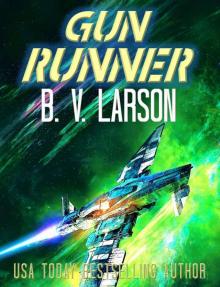 Gun Runner
Gun Runner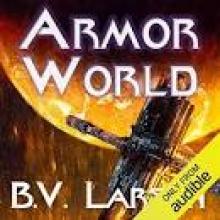 Armor World
Armor World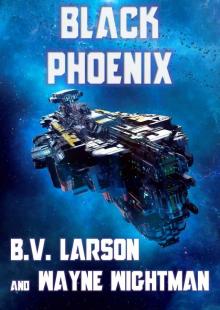 Black Phoenix
Black Phoenix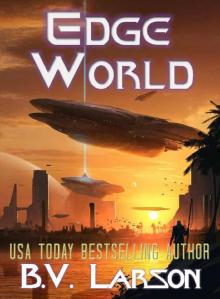 Edge World (Undying Mercenaries Series Book 14)
Edge World (Undying Mercenaries Series Book 14)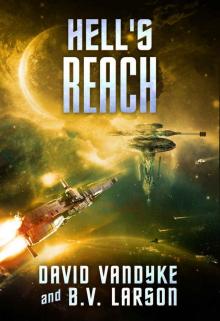 Hell's Reach (Galactic Liberation Series Book 6)
Hell's Reach (Galactic Liberation Series Book 6)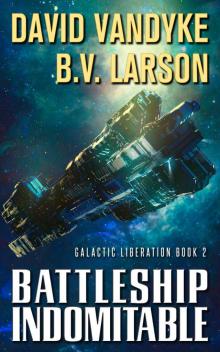 Battleship Indomitable
Battleship Indomitable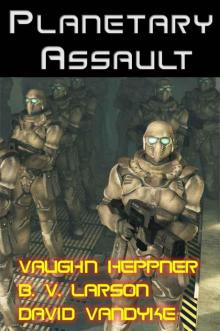 Planetary Assault (Star Force Series)
Planetary Assault (Star Force Series)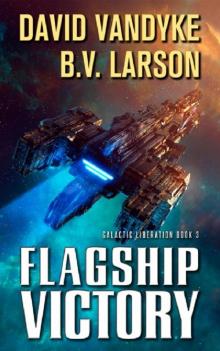 Flagship Victory (Galactic Liberation Book 3)
Flagship Victory (Galactic Liberation Book 3)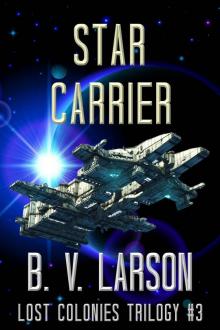 Star Carrier (Lost Colonies Trilogy Book 3)
Star Carrier (Lost Colonies Trilogy Book 3)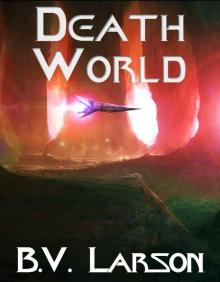 Death World (Undying Mercenaries Series Book 5)
Death World (Undying Mercenaries Series Book 5)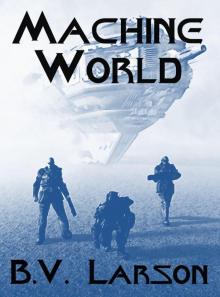 Machine World (Undying Mercenaries Book 4)
Machine World (Undying Mercenaries Book 4) Mech 2
Mech 2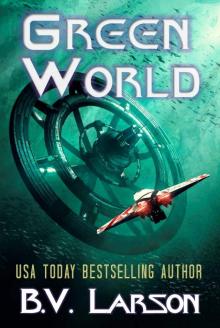 Green World
Green World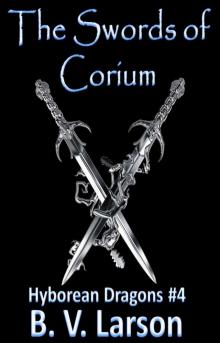 The Swords of Corium
The Swords of Corium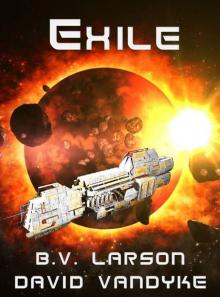 Star Force 11: Exile
Star Force 11: Exile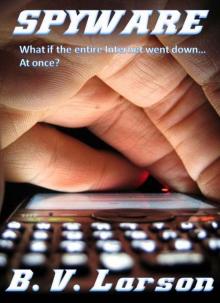 SPYWARE BOOK
SPYWARE BOOK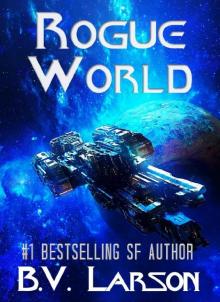 Rogue World (Undying Mercenaries Series Book 7)
Rogue World (Undying Mercenaries Series Book 7)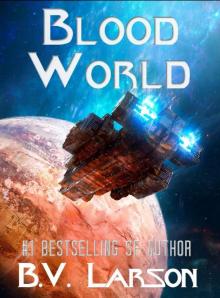 Blood World (Undying Mercenaries Series Book 8)
Blood World (Undying Mercenaries Series Book 8)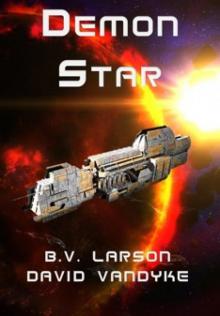 Demon Star
Demon Star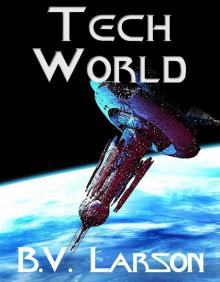 Tech World (Undying Mercenaries Series)
Tech World (Undying Mercenaries Series)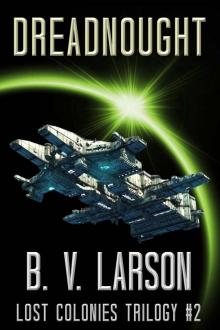 Dreadnought (Lost Colonies Trilogy Book 2)
Dreadnought (Lost Colonies Trilogy Book 2) Shifting
Shifting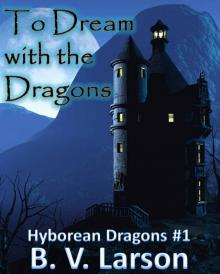 To Dream with the Dragons (Hyborean Dragons)
To Dream with the Dragons (Hyborean Dragons)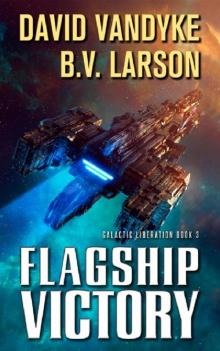 Flagship Victory
Flagship Victory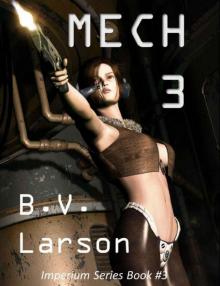 Mech 3: The Empress
Mech 3: The Empress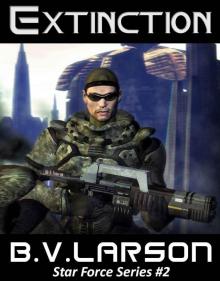 Extinction Ebook Full
Extinction Ebook Full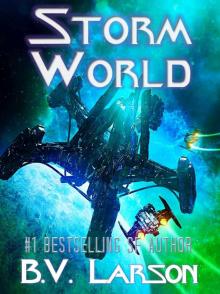 Storm World (Undying Mercenaries Series Book 10)
Storm World (Undying Mercenaries Series Book 10)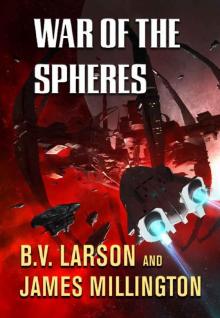 War of the Spheres
War of the Spheres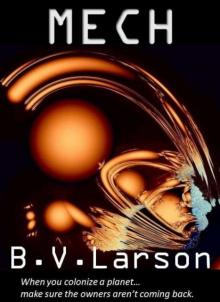 MECH EBOOK
MECH EBOOK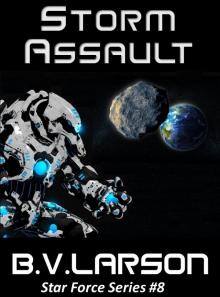 Storm Assault (Star Force Series)
Storm Assault (Star Force Series)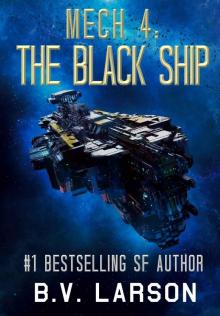 Mech 4: The Black Ship (Imperium Series Book 5)
Mech 4: The Black Ship (Imperium Series Book 5)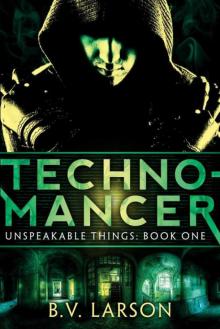 Technomancer
Technomancer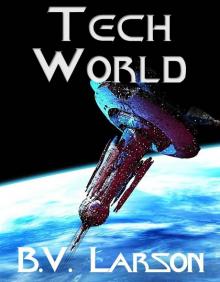 Tech World
Tech World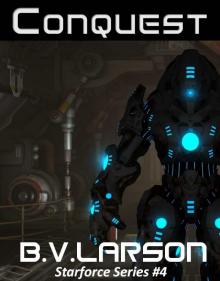 Conquest (Star Force Series)
Conquest (Star Force Series)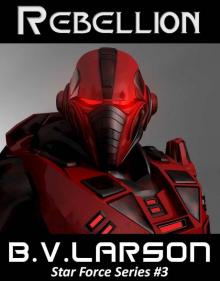 Rebellion sf-3
Rebellion sf-3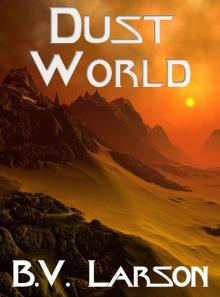 Dust World
Dust World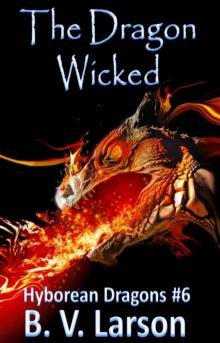 The Dragon Wicked
The Dragon Wicked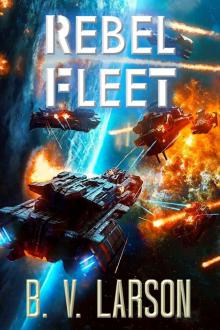 Rebel Fleet
Rebel Fleet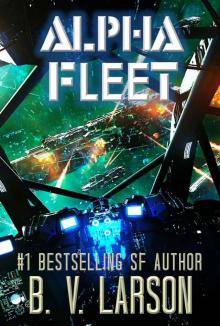 Alpha Fleet (Rebel Fleet Series Book 3)
Alpha Fleet (Rebel Fleet Series Book 3)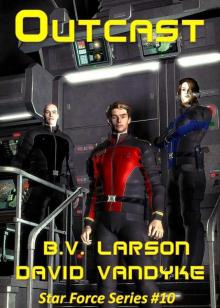 Star Force 10: Outcast
Star Force 10: Outcast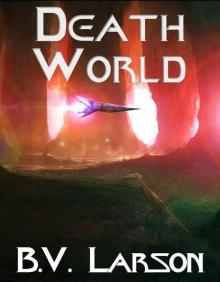 Death World
Death World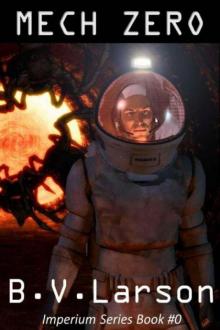 Mech Zero: The Dominant
Mech Zero: The Dominant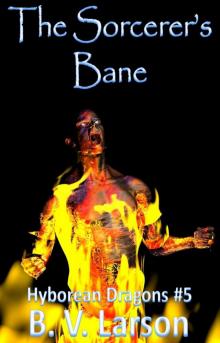 The Sorcerer's Bane
The Sorcerer's Bane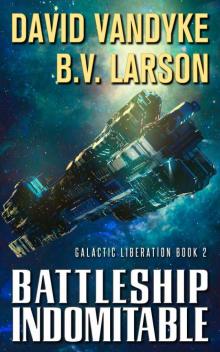 Battleship Indomitable (Galactic Liberation Book 2)
Battleship Indomitable (Galactic Liberation Book 2) Haven Magic
Haven Magic Amber Magic (Haven Series #1)
Amber Magic (Haven Series #1)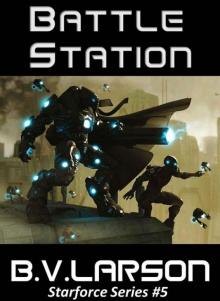 Battle Station sf-5
Battle Station sf-5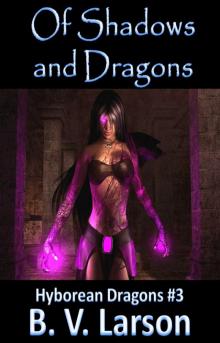 Of Shadows and Dragons
Of Shadows and Dragons Starfire
Starfire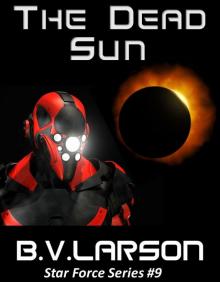 The Dead Sun (Star Force Series)
The Dead Sun (Star Force Series)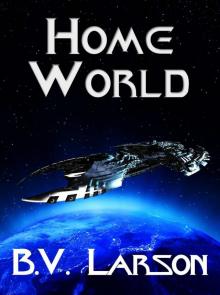 Home World (Undying Mercenaries Series Book 6)
Home World (Undying Mercenaries Series Book 6)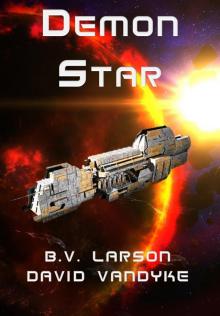 Star Force 12 Demon Star
Star Force 12 Demon Star Dream Magic
Dream Magic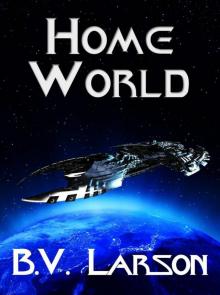 Home World
Home World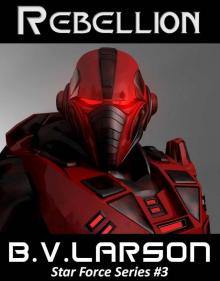 Rebellion Ebook Full
Rebellion Ebook Full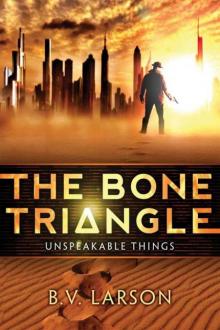 The Bone Triangle
The Bone Triangle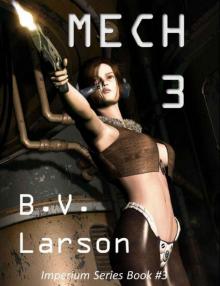 The Empress i-3
The Empress i-3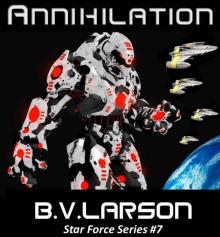 Annihilation (Star Force Series)
Annihilation (Star Force Series)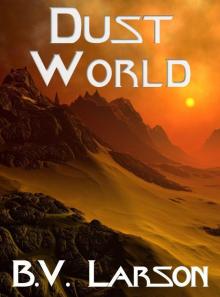 Undying Mercenaries 2: Dust World
Undying Mercenaries 2: Dust World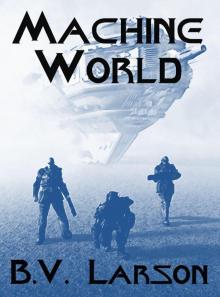 Machine World
Machine World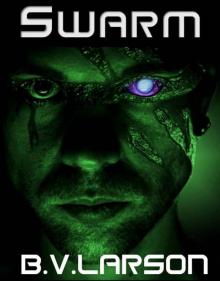 Swarm
Swarm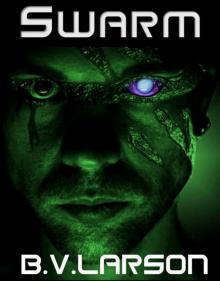 Swarm sf-1
Swarm sf-1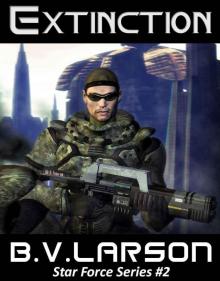 Extinction sf-2
Extinction sf-2 Amber Magic h-1
Amber Magic h-1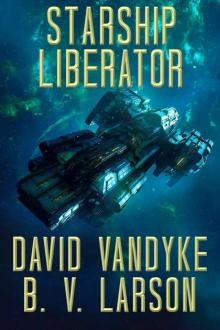 Starship Liberator
Starship Liberator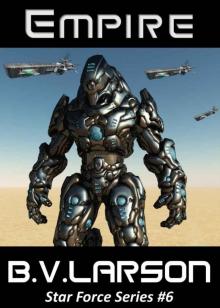 Empire Ebook Full
Empire Ebook Full The Dragon-Child
The Dragon-Child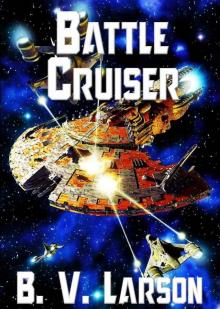 Battle Cruiser
Battle Cruiser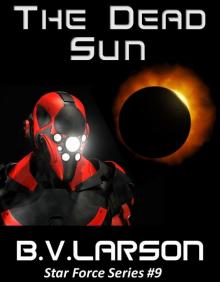 The Dead Sun
The Dead Sun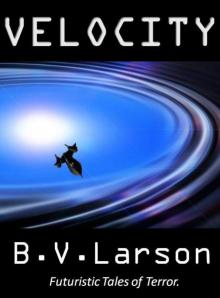 Velocity
Velocity Creatures
Creatures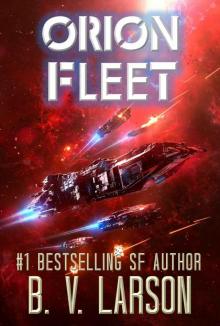 Orion Fleet (Rebel Fleet Series Book 2)
Orion Fleet (Rebel Fleet Series Book 2)